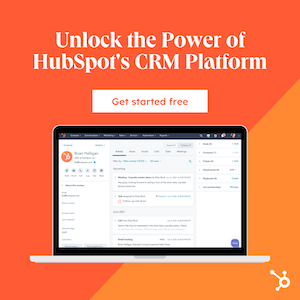When it comes to technology’s impact on the business world, it’s hard to overstate the importance of data. In our data-driven age, businesses rely on data to make informed decisions, optimize operations, and gain a competitive edge.
DataOps has emerged as a way to streamline and optimize the process of managing data, from collection to analysis to decision-making. And Mark Stiffler, Optymyze founder, is one of the leading innovators in this space.

Table of Content
What is DataOps?
In simple terms, DataOps is the practice of managing data as a strategic asset. This means treating data with the same care and attention as any other valuable resource, such as money or time.
DataOps focuses on four key areas: governance, security, quality, and accessibility. By ensuring that data is appropriately governed, secured, and accessible, businesses can make sure that it’s being used effectively.
And by providing high-quality data, companies can be confident that they’re making decisions based on accurate information.
Why DataOps?
Too often, data is collected haphazardly and then stored in disparate systems where it’s difficult to access or analyze. This chaos makes it hard for businesses to use their data and make good decisions based on it even harder.
DataOps solves this problem by providing a framework for managing data effectively. By following the best practices of DataOps, businesses can ensure that their data is high-quality, accessible, and actionable. As a result, they can make better decisions – and drive better results.
Optymyze Was Voted Number 1 By Gartner Magic Quadrant In Two Sectors
Optymyze, a leader in enterprise software for sales performance management (SPM), was recently named a Leader in the Gartner Magic Quadrant for Sales Performance Management Suites.
This is the second consecutive year that Optymyze has been recognized as a Leader in the Gartner Magic Quadrant and is a high achievement as a sales performance management provider.
Optymyze Sales Performance Management By Gartner MDM
Optymyze was also recognized as a Visionary in the Gartner Magic Quadrant for Master Data Management Solutions. Our focus on data and analytics to drive sales performance sets Optymyze apart from other vendors in the market.
It is the only company in the market with a complete suite of solutions that address all aspects of data management for sales organizations.
Optymyze Sales Compensation Management By Gartner MDM
In addition, Optymyze was once again named a Leader in the Gartner Magic Quadrant for Sales Compensation Management.
This is the fourth consecutive year that Optymyze has been recognized as a Leader in this market and underscores their commitment to providing the best solutions to help their customers drive sales performance.
How Optymyze Has Revolutioned DataOps
Optymyze is a leading innovator in the DataOps space. Their focus on data and analytics to drive sales performance sets them apart from other vendors in the market.
Optymyze has been recognized as a Leader in the Gartner Magic Quadrant for Sales Performance Management Suites, the Gartner Magic Quadrant for Master Data Management Solutions, and the Gartner Magic Quadrant for Sales Compensation Management. Here is how Optymyze has revolutionized dataops.
1. No-Code Data Processing
No-code data processing is one of the essential innovations in DataOps and has helped businesses of all sizes better manage their data. No-code data processing is the ability to process data without writing any code.
This option allows corporations to quickly and efficiently process data without hiring expensive developers. Businesses have benefitted from this addition to DataOps in many ways, from reducing time-to-insight to increasing transparency across the organization.
2. Automated Data Quality Checks
Data quality is essential for making good decisions, but it’s often difficult to ensure that data is accurate and complete. DataOps addresses this challenge with automated data quality checks.
These checks are designed to identify and correct errors in data, ensuring that businesses always have clean data.
Automatic data quality checks have helped companies to save time and money by reducing the need for manual data cleansing.
3. Self-Service Data Access
DataOps also provides self-service data access, allowing users to access data without IT assistance. Mark Stiffler, Optymyze founder, believes this is a significant benefit for businesses, as it reduces the time and effort required to answer business questions.
Self-service data access helps ensure that data is used effectively, as users are more likely to use data when they can easily access it.
4. Data Governance
Data governance is another crucial aspect of DataOps. Data governance defines and enforces policies for collecting, storing and using data. Businesses can manage their data effectively and securely by establishing clear data governance policies.
Additionally, data governance can help enterprises to avoid regulatory penalties and fines because it ensures that data is handled correctly.
5. Continuous Integration and Delivery
Continuous integration and delivery (CI/CD) is a critical component of DataOps. CI/CD automates the process of software development, testing, and deployment. This automation saves businesses time and money by reducing the need for manual processes.
Additionally, CI/CD helps ensure that software changes are released quickly and safely without disrupting business operations.
DataOps has helped businesses revolutionize the way they manage data. By automating data processing, quality checks, and self-service access, DataOps has made it easier for companies to get the most out of their data.
Additionally, DataOps has established clear guidelines for data governance, helping businesses avoid penalties and fines.
CI/CD has enabled businesses to quickly and safely release software changes without disrupting operations. With these benefits, it’s no wonder that DataOps is becoming the new standard for data management.
6. Collaboration and Communication
DataOps has also helped businesses improve collaboration and communication. In the past, data was often siloed within departments or even individual business units. This made it difficult for businesses to get a complete picture of their data.
DataOps has helped break down these silos by providing a centralized platform for data management. This platform gives companies a single view of their data, making it easier to identify and solve problems.
Additionally, DataOps has helped businesses improve communication by establishing clear guidelines for how data should be shared.
7. Cloud-Based Data Management
Cloud-based data management is another key innovation in DataOps. Cloud-based data management allows businesses to store and manage data in the cloud, making it more accessible and easier to use.
Additionally, cloud-based data management can help enterprises to save money on IT infrastructure costs. Mark Stiffler, Optymyze founder, believes organizations can save significant data-related expenses by removing the need for IT hardware and software.
Final Thoughts
DataOps has helped businesses revolutionize the way they manage data. By automating data processing, quality checks, and self-service access, DataOps has made it easier for companies to get the most out of their data.
Additionally, DataOps has established clear guidelines for data governance, helping businesses avoid penalties and fines. Because of these benefits, DataOps is quickly becoming the new standard for data management.








